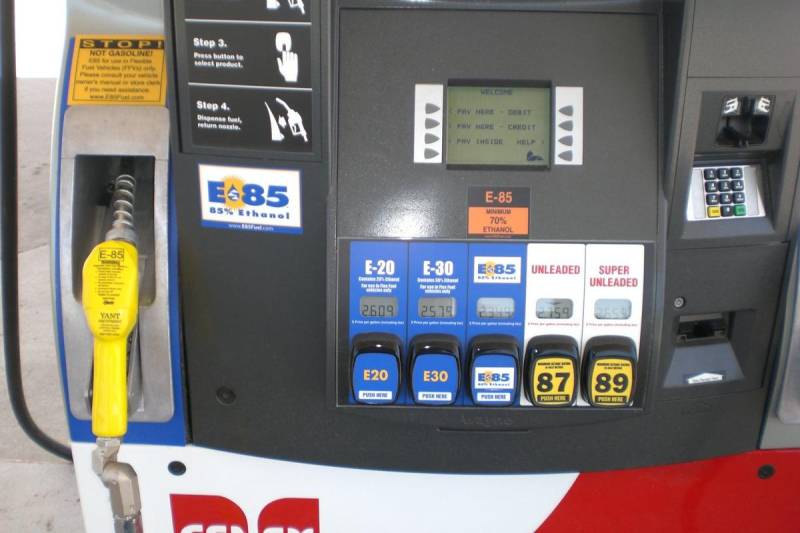
What is the use of used cooking oil in your house? No? No idea? The Indian government has one, as it recently announced a major scheme aimed at converting used cooking oil (UCO) into biodiesel to power the vehicles.
According to report published by DW, India is the world's third-largest consumer of crude oil and the energy-hungry nation relies on imports for 80 per cent of its fuel requirements.
The reason behind such ideas is the fact that India is also home to some of the worst polluted cities in the world.
The plan foresees India's three major state-run oil companies — Indian Oil, Bharat Petroleum and Hindustan Petroleum — buying the nation's entire supply of biodiesel obtained from UCO for the next three years.
The oil corporations will pay 51 Indian rupees ($0.72) per litre of biodiesel during the first year of the programme, followed by 52.7 rupees in the second and 54.5 rupees in the third year. For the first year, taxes and transportation costs will also be borne by the government.
The government hopes this will promote biodiesel production, by ensuring a guaranteed income for existing plants that convert UCO to biodiesel and encouraging more firms to set up such facilities.
According to estimates by the Food Safety and Standards Authority of India (FSSAI), India has the potential to convert 2.2 billion litres of UCO into biodiesel by 2022.
The DW in its report said India is among the largest consumers of edible oil. At present, the country consumes about 23 million tons of edible oil annually and close to 40 per cent of this goes toward commercial usage such as in restaurants and the processed food industry. Total consumption is expected to exceed 34 million tons by 2030, suggests a report by RaboResearch.
Most of the UCO is currently either discarded in an environmentally hazardous manner or pumped back into the food chain through street vendors and smaller restaurants.
But experts remain sceptical that the production of biodiesel from UCO can be increased rapidly.
Prasan Surana, founder of the start-up Synergy Teletech which distributes biodiesel made from UCO, told DW that India lacks a system to properly collect the used cooking oil from various sources. And this needs to change if the government's plans are to be scaled up, he said.
He pointed out that big restaurants and hotels find selling used cooking oil to roadside vendors more profitable than giving it to biodiesel firms. "I think the government is working in the right direction, but it will take a long time to produce the ambitious numbers it is expecting," he said.
According to report published by DW, India is the world's third-largest consumer of crude oil and the energy-hungry nation relies on imports for 80 per cent of its fuel requirements.
The reason behind such ideas is the fact that India is also home to some of the worst polluted cities in the world.
The plan foresees India's three major state-run oil companies — Indian Oil, Bharat Petroleum and Hindustan Petroleum — buying the nation's entire supply of biodiesel obtained from UCO for the next three years.
The oil corporations will pay 51 Indian rupees ($0.72) per litre of biodiesel during the first year of the programme, followed by 52.7 rupees in the second and 54.5 rupees in the third year. For the first year, taxes and transportation costs will also be borne by the government.
The government hopes this will promote biodiesel production, by ensuring a guaranteed income for existing plants that convert UCO to biodiesel and encouraging more firms to set up such facilities.
According to estimates by the Food Safety and Standards Authority of India (FSSAI), India has the potential to convert 2.2 billion litres of UCO into biodiesel by 2022.
The DW in its report said India is among the largest consumers of edible oil. At present, the country consumes about 23 million tons of edible oil annually and close to 40 per cent of this goes toward commercial usage such as in restaurants and the processed food industry. Total consumption is expected to exceed 34 million tons by 2030, suggests a report by RaboResearch.
Most of the UCO is currently either discarded in an environmentally hazardous manner or pumped back into the food chain through street vendors and smaller restaurants.
But experts remain sceptical that the production of biodiesel from UCO can be increased rapidly.
Prasan Surana, founder of the start-up Synergy Teletech which distributes biodiesel made from UCO, told DW that India lacks a system to properly collect the used cooking oil from various sources. And this needs to change if the government's plans are to be scaled up, he said.
He pointed out that big restaurants and hotels find selling used cooking oil to roadside vendors more profitable than giving it to biodiesel firms. "I think the government is working in the right direction, but it will take a long time to produce the ambitious numbers it is expecting," he said.
